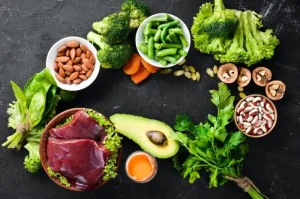You suffer from an allergy when your immune system reacts to a substance that doesn’t cause a reaction in most people. The job of the immune system is to find foreign substances, such as viruses and bacteria, and get rid of them.
In people with allergies, the immune system mistakenly identifies a harmless element like pollen or peanuts as a dangerous intruder and begins to produce chemicals to fight against it. This in turn causes the symptoms of an allergic reaction.
Pollen
Exposure to pollen, a fine powder produced by trees, grasses and weeds, can trigger an allergic reaction in the body. In fact, pollen is one of the most common causes of allergies in the U.S.
The tiny particles are released from trees, weeds and grasses to fertilize parts of other plants. But as the pollen hitch rides on currents of air, sometimes they enter your nasal passage or throat, triggering a type of seasonal allergic reaction.
Symptoms: sneezing, a runny nose, a scratchy throat, coughing, nasal congestion and itchy, watery eyes.
You can minimize the discomfort of hay or rose fever by staying indoors as much as possible on hot, windy days when pollen counts are high. Also, keep your doors and windows closed and use an air conditioner to lower indoor humidity and reduce the amount of airborne pollen that finds its way indoors.
Mold
Mold is a class of fungus that grows in damp places. It can grow almost anywhere that is warm, damp and humid environments like basements or bathrooms as well as in grass or mulch.
Some symptoms of a mold allergy are sneezing, itching, a runny nose, eye irritation, a cough, congestion, post-nasal drip and asthma attack.
Food
When it comes to food allergies, there are some common foods that are known to be the main culprits. These include cow’s milk, eggs, peanuts, fish, shellfish, tree nuts (such as cashews or walnuts), wheat and soy.
Mild symptoms may include sneezing, a stuffy or runny nose, watery eyes, swelling, a rash, stomach cramps, nausea, vomiting and diarrhea. On the other hand, severe symptoms are difficulty breathing, wheezing, hives and dizziness.
To prevent allergic reactions, avoid problematic foods even in small amounts. Also, when purchasing food at a supermarket or ordering food in a restaurant, check the ingredients thoroughly.










